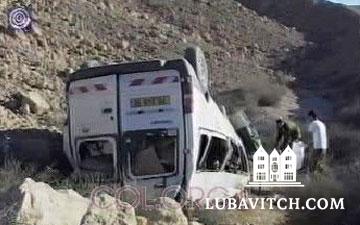Within Chabad-Lubavitch communities internationally, shock and grief over the deaths of three young Chabad students two weeks ago have now given way to a more introspective focus. Many have issued calls for a concerted effort towards greater achdut, or unity among Chabad chasidim, as they reflect on a tragedy that struck deeply, affecting every segment of the community.
The tragedy and its circumstances, in which the students were killed in a car accident on their way to celebrate Chanukah with Israeli soldiers at an IDF base near Eilat, threw a pall of emotional and spiritual distress among Chabad Chasidim worldwide.
In the faces of the three students plastered on the pages of all the Chabad newspapers and websites, every Lubavitch parent, teacher and mentor saw his own child, his own student. Students were particularly affected, and at many Chabad yeshivahs in Israel, the U.S. and elsewhere, yeshiva principals have called assemblies in an effort to address the gripping sorrow. Many students have dedicated studying segments of Talmud and Chasidic discourses to honor the memory of their peers.
In response to similar tragedies in the past, the Lubavitcher Rebbe, of blessed memory, called for enhanced unity and ahavat yisrael among his chasidim. While unity is an almost natural response in times of crisis, “we should not need to wait for a crisis to come together,” says Rabbi Yehuda Krinsky, Chairman of the Lubavitch educational and social services divisions. Rabbi Krinsky will be travelling to Israel to address a special shloshim gathering to be held on Tuesday, January 16, in Jerusalem. The assembled will also hear from his colleagues in the Rebbe's Secretariat, Rabbi B. Klein and Rabbi L. Groner.

Be the first to write a comment.